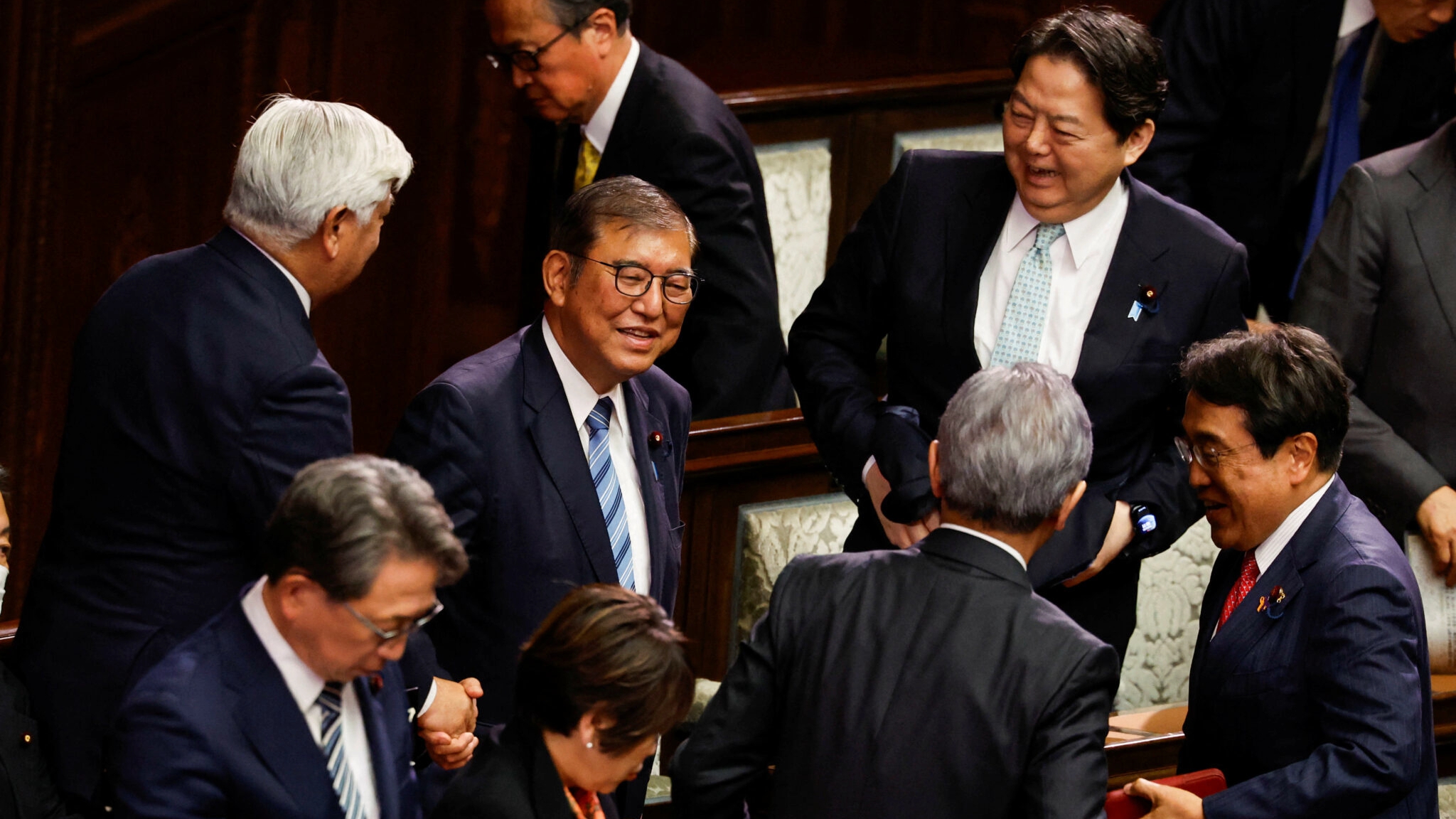After the elections to the Lower House of the Diet of Japan, which took place on October 27, the previously ruling coalition of the Liberal Democratic Party (LDP) and Komeito ended up in the minority.

The Democratic Party for the People has rejected joining the coalition
Concessions to the Opposition
The LDP-Komeito coalition had difficult negotiations with the opposition, and in particular with the Constitutional Democratic Party (CDP), over the distribution of seats in the Diet committees. As a result of the negotiations, out of 17 standing committees, 9 representatives from the LDP and 1 from the Komeito were appointed as committee chairmen; the opposition received 7 chairmen seats (CDP – 5; Japan Innovation Party – 1; DPP – 1).
Most significantly, Jun Azumi from the CDP was appointed as chairman of the Committee on Budget. This is a very important committee, and the fact that its chairman is a member of the oppositional CDP (which is the ideological opponent of the LDP on most issues) means that the debates in this committee will be difficult, and the discussions on budget issues that the LDP and Komeito will put on the agenda can be deliberately postponed by the chairman, who draws up the schedule of discussions.
Thus, at first glance, the LDP-Komeito coalition is now put in a difficult position.
How difficult is the situation for the LDP and Komeito in reality?
At the same time, the opposition parties do not present a united front. The fragmentation of the opposition can be demonstrated by the prime ministerial election. The CDP called on the opposition to vote not for the head of the LDP, Shigeru Ishiba, but for the chairman of its party, Yoshihiko Noda. However, in the second round of elections, when deputies had to vote for only one of the two candidates who passed the first round, 84 deputies from the opposition voted for candidates from their parties, even though they realized that their votes would be considered invalid. As a result, Shigeru Ishiba won his new term (221 votes; 160 dietmen voted for Yoshihiko Noda).
This event demonstrates that the opposition parties do not seek to unite with the CDP against the LDP and Komeito and will primarily pursue their own interests. Considering that the opposition parties have a wide range of views, from the far right to the far left, and different positions on specific political initiatives, the LDP and Komeito can negotiate cooperation with these parties. In the case of a sound approach to negotiations with these groups, it will not be difficult for the former ruling coalition to gain the 18 votes missing for a majority, so the role of the DPP should not be overestimated either; it is not the only potential ally in the vote in the lower house. In addition, after the wide publicity of the scandal surrounding Yuichiro Tamaki’s adultery, his party’s negotiating potential has been somewhat reduced.
In addition, the LDP and Komeito make up the majority in the Upper House of the Diet (140 seats against the opposition’s 92). The Upper House has less influence and power than the Lower House, but it can complicate the adoption of decisions approved by the Lower House. If the Upper House votes down a bill passed down by the Lower House, the latter can override this decision by a second vote of the Lower House alone. However, the members of the Lower House will need to gain two-thirds of the votes to do so, rather than just half, which the opposition cannot afford now. Half of the members of the Upper House will be re-elected in July 2025, but given the 48-seat gap between the LDP-Komeito coalition and the opposition (140 against 92), these elections are unlikely to change the current situation. This further complicates the situation for the opposition, which, of course, can sabotage the initiatives of the LDP and Komeito in the Lower House, but can advance its own bills only on terms acceptable to this coalition.
Security Policy Outlook
Given the balance of power in the Diet, we can expect the implementation of several security initiatives by newly elected Prime Minister Ishiba Shigeru, as many opposition members are ready to support these endeavors. Measures in this area are unlikely to be as large-scale as the creation of an “Asian NATO” or a fundamental reform of the Japan Self-Defense Forces (let alone the revision of Article 9 of the Constitution), which seems difficult to achieve in the current situation in the Diet. However, we can expect an increase in the defense budget (especially if the Trump administration begins to reduce its military presence in East and Southeast Asia), a strengthening of the military-political alliance with the United States, and security cooperation with AUKUS and the EU. At the same time, the chairmanship of the CDP in the Budget Committee may create obstacles to the approval of funds for military spending.
Daniil Romanenko, japanologist, researcher from the Institute of Oriental Studies of the Russian Academy of Sciences, exclusively for the online magazine “New Eastern Outlook”
